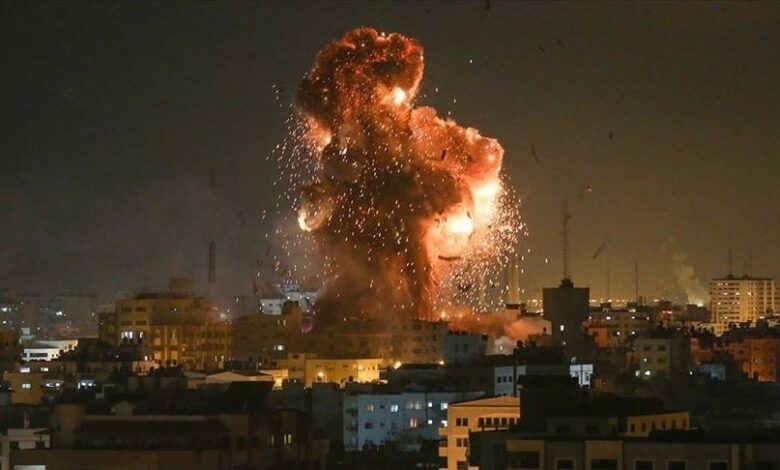Israel Denies Advancing Toward Damascus Amid Heavy Airstrikes in Syria
In the aftermath of Syrian President Bashar al-Assad's overthrow, Israeli forces conducted extensive airstrikes across Syria, targeting military assets and chemical weapons facilities, according to reports by Syrian opposition groups and media. However, Israeli officials have denied claims of advancing toward Damascus, stating their operations are confined to a buffer zone established after the 1973 Mideast war.

In the aftermath of Syrian President Bashar al-Assad’s overthrow, Israeli forces conducted extensive airstrikes across Syria, targeting military assets and chemical weapons facilities, according to reports by Syrian opposition groups and media. However, Israeli officials have denied claims of advancing toward Damascus, stating their operations are confined to a buffer zone established after the 1973 Mideast war.
Israel’s Strategic Objectives
Israeli military spokesperson Lt. Col. Nadav Shoshani confirmed troops were positioned within the 400-square-kilometer buffer zone to ensure national security. Israeli media reported systematic destruction of Syrian military infrastructure to prevent it from falling into the hands of extremist groups. Targets included arms depots, missile launchers, and heavy weaponry.
“These operations are designed to neutralize potential threats to Israel and to ensure that the next ruling authority in Syria must rebuild its military from scratch,” wrote Yossi Yehoshua of Yediot Ahronot.
Post-Assad Damascus
Life in Damascus has begun to stabilize following Assad’s departure to Russia, where he sought asylum after a lightning offensive by insurgent groups led by Hayat Tahrir al-Sham (HTS). Shops and banks have reopened, and residents have expressed cautious optimism about the city’s future, with many welcoming the end of what they describe as decades of repression under Assad’s regime.
“Damascus is more beautiful now,” said Maysoun Qurabi, a local shopper. “It has a soul, and people feel at ease.”

Regional and International Reactions
Israel’s actions have drawn widespread condemnation. Egypt, Jordan, Saudi Arabia, and Turkey criticized the incursion, accusing Israel of exploiting Syria’s chaos. Turkey’s Foreign Ministry labeled Israel’s operations as “occupier behavior,” undermining peace prospects in Syria. The United Nations also expressed concern, calling on Israel and Syria to respect the 1974 disengagement agreement.
Uncertain Path Ahead
While the fall of Assad marks a turning point in Syria’s 14-year civil war, the country faces a precarious future. The absence of a unified leadership and Israel’s military actions underscore the potential for continued instability. With regional powers and international organizations closely monitoring developments, the situation remains fluid and unpredictable.
This marks a pivotal moment in Middle Eastern geopolitics as new alliances, conflicts, and power dynamics begin to emerge.




